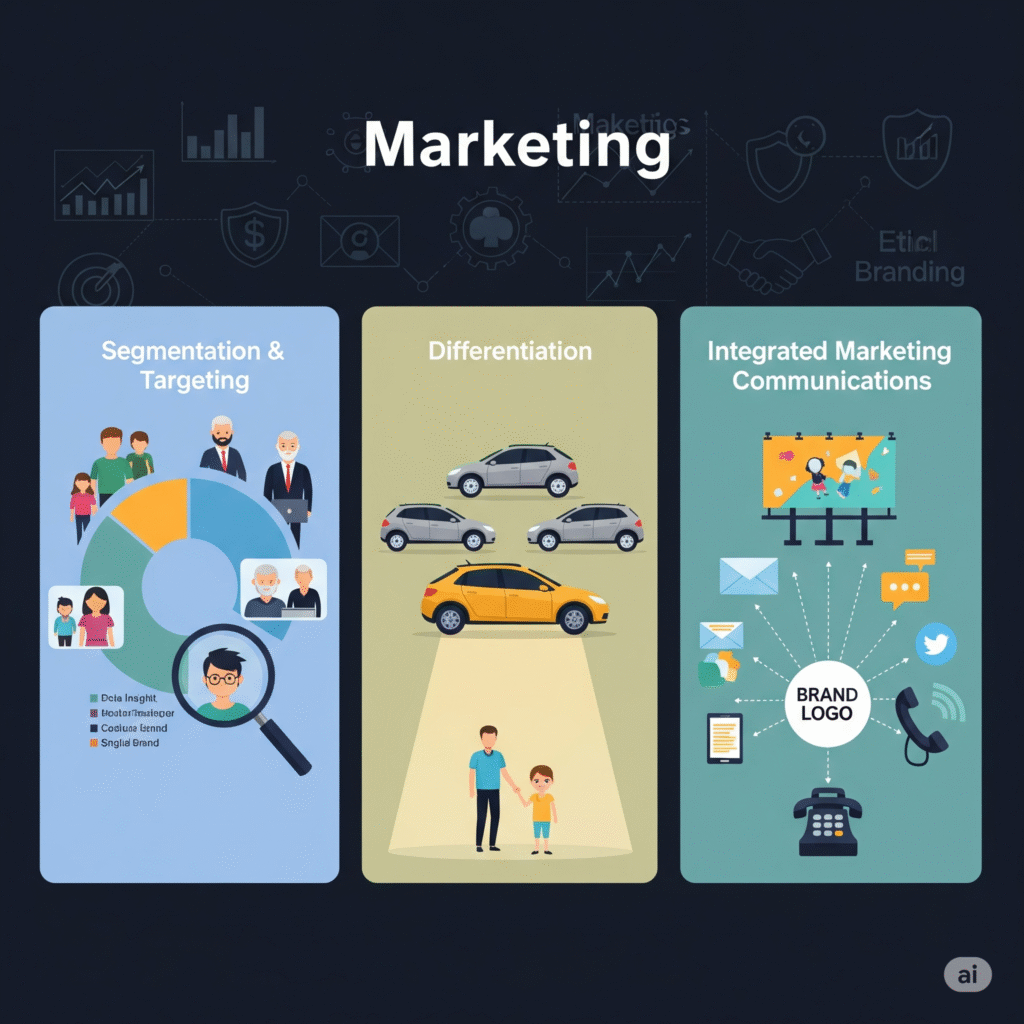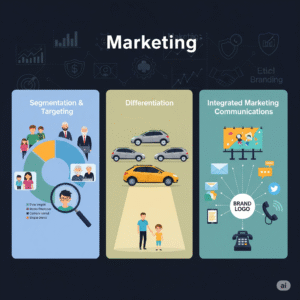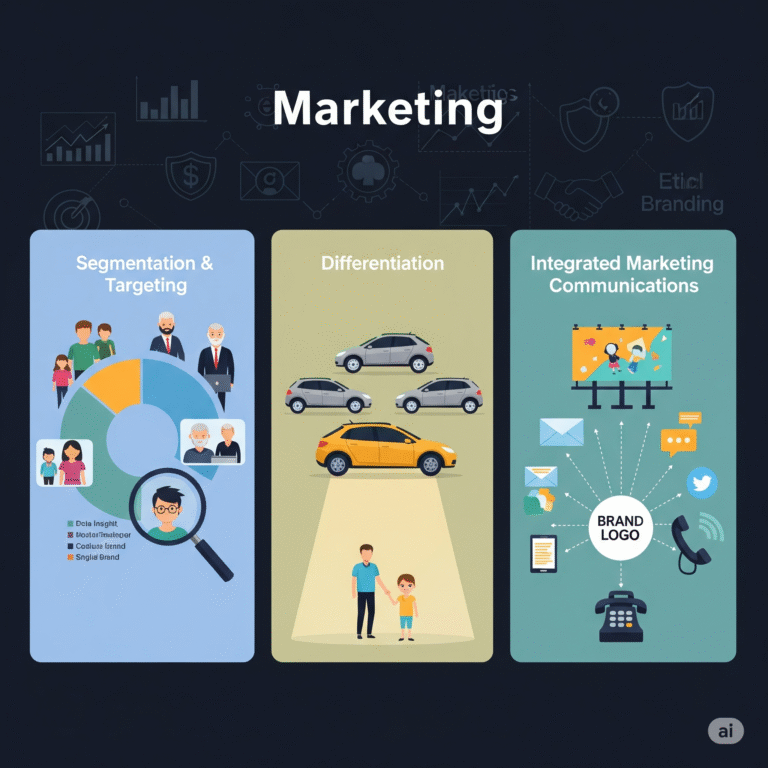
Coming back under the marketing strategy, I have hit how much principles are known to change my understanding of business and strategy. In many Takeaairs, three were especially remarkable: market division and targeting, competitive advantage through discrimination and relevance of integrated market communication (IMC). All of these subjects not only established the basic principles of effective advertising, but also equipped me with such skills that I can use in life on a daily basis.
Market segmentation and targeting taught me that there is no need to treat customers equally. Segmenting a market into distinct clusters according to needs, behavior, and characteristics was the clear solution once I looked at examples of brands reaching out to specific sets. This concept will benefit me in future roles by encouraging a higher-level, data-driven emphasis on campaign planning so that dollars are being spent in most likely audiences to target and convert.
The second concept—competitive advantage via differentiation—rang true as well. I learned about how brands succeed when they hold a unique place in the customer’s mind via innovation, quality, customer experience, or brand story. Recognition of this helped hone my thought process regarding how to place goods into over-saturated markets and the value in constant reinforcement of the promise of the brand. This will come in handy to my strategic decision-making when helping organizations differentiate themselves from competitors.
Third, the IMC model taught me that consistency at every marketing touchpoint is vital. From a tweet as a social media ad to a call as customer care, they all need to support the voice and message of the brand. This will be my new rule of thumb in campaigns where coordination between tone, content, and timing can create credibility and loyalty in customers.
Ahead, I am sure future marketing strategy will be driven by ethical and individualized connection. With greater access to information and artificial intelligence technology, brands now can customize experience in ways previously unimaginable. But doing so responsibly—by being considerate and respecting privacy—will be the difference-maker on which brands thrive within a more interrogative consumer landscape. Strategy will not be about reaching people as much as reaching people with intent, trust, and openness.







